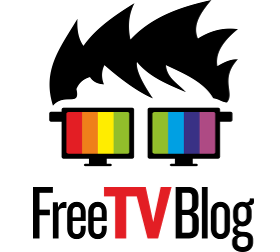 In a thread in the FTA section of DBSTalk, someone wrote, “I don’t understand why FTA isn’t more popular.” That’s a good question. (Okay, it’s not actually a question, but you get the idea.)
In a thread in the FTA section of DBSTalk, someone wrote, “I don’t understand why FTA isn’t more popular.” That’s a good question. (Okay, it’s not actually a question, but you get the idea.)
There are at least two good reasons why FTA isn’t more popular. The first is analogous to the difference between paying DVR fees vs. building your own DVR.
The big channel providers (cable, pay-TV satellite) promote their DVRs through lots of advertising. Their monthly DVR fees pad the bottom line, and having lots of stored programming reduces customers’ desire to leave for another provider.
But a savvy viewer could take an ordinary computer, add a card or two and some software, sign up with a free listings service, and create his own DVR with zero monthly fees and full portability.
So why don’t more viewers make their own DVR? Initial cost, time, technical competence, convenience, and promotion. Making a DVR costs a few hundred if you don’t have a suitable spare computer sitting around. It takes time to find and install all the necessary pieces. It takes a small bit of technical competence (or at least technical confidence) to open up a computer and add a card. This is nowhere nearly as convenient as letting the nice installer hook up your ready-to-go DVR. Finally, if you’re a techie, you’ve read stories about home-grown DVRs about a tenth as often as you’ve seen ads for providers’ DVRs. If you’re not a techie, you might never have heard of home-grown DVRs at all.
FTA is very similar. Compared to the millions the big providers pour into advertising, the promotion of FTA shines like a dime on the floor of a treasure vault. It takes real out-of-pocket cash to get started with FTA, and it takes a bit of work and technical competence. But folks who have figured it out know that it’s worth it.
One thing FTA needs is a receiver that’s as easy to use as a cable box. But FTA receivers also need to handle a variety of new and challenging DVB-S2 formats with high bit rates to support true HD programming. Right now, those two goals seem to be incompatible. I’m looking forward to the day when I get a receiver as rock-solid as my old Fortec Star Mercury II, yet able to handle every FTA HD signal that’s thrown at it. Maybe in another year or so?
The second big reason that true, legal FTA isn’t more popular is piracy. In some people’s minds, FTA = piracy. That’s because a lot of pirates use “FTA” to mean pirating signals. Some Dish Network folks talk about a “FTA problem” when they, no doubt, really mean a piracy problem.
FTA feels a little too good to be true. (All these channels, and I never have to pay anyone for them, ever?) Take that thought and add in a distant echo of an old busted-pirate news story or your co-worker’s second cousin’s trailer-park friend, and you’ll get some people who believe that any FTA must be illegal or immoral or something. It’s not entirely logical, but I’ve seen it happen.
Personally, I think the answer is to come up with a new name for legal FTA. Imagine an association of equipment dealers and broadcasters (e.g. FreeDBS, or an reincarnated White Springs) coming up with a trademarked name for watching in-the-clear satellite TV signals. Then maybe we’d start transitioning to a discussion of KleerSat channels.
